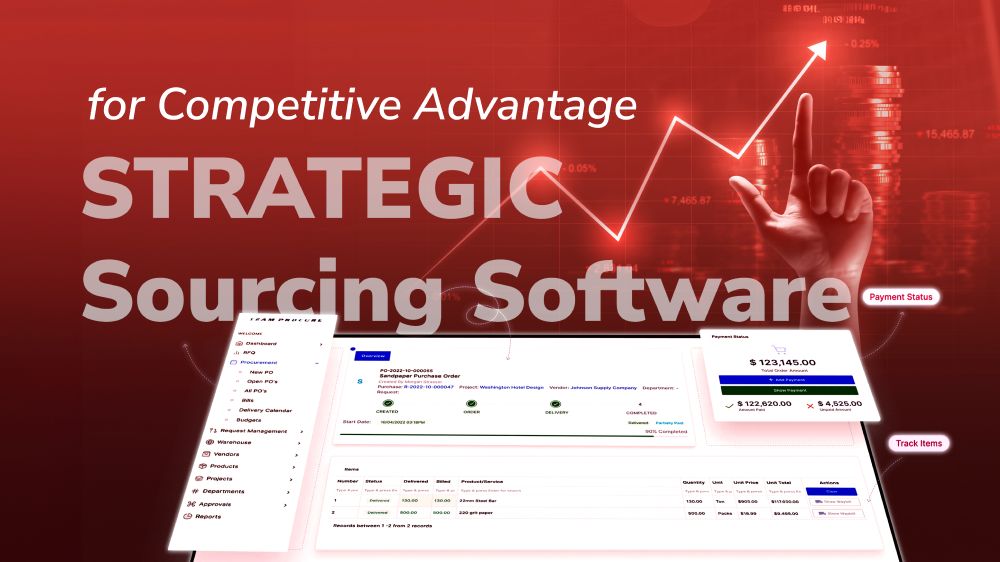What Is an Offshore Development Center (ODC)? - A Comprehensive Guide
Outsourcing an offshore development center helps tech companies scale by offloading work, but a guide is essential to do it right.

Content Map
More chaptersIn today’s IT industry, it has become much more common for a tech company to struggle with the local shortage of talent. 76% of IT employers confirm that they are encountering difficulty in talent acquisition, according to ManpowerGroup’s 2024 Global Talent Shortage report. This is when outsourcing and offshore development centers (ODCs) shine.
In a comprehensive manner, we’ll discuss everything you need to know about ODCs. Our guide covers the benefits and challenges of having an ODC and guides you in finding the right partner for offshore development center services. So, read on to the end!

What Is an Offshore Software Development Center (ODC)?
Offshore development center, also popularly abbreviated as ODC, is a tech-related term used for outsourcing software development needs or other IT-specific work to remote service providers. Some prefer using alternatives, such as ‘software development center,’ ‘offshore outsourcing,’ or ‘offshore development unit’, interchangeably with ODCs. Still, they all essentially refer to the same concept.
In simpler words, an ODC functions as an outpost to the in-house teams. It aims to be an extended arm of the company, offering supporting resources otherwise not domestically available. Many business leaders prefer having full control of their offshore development teams, while others choose to delegate complete project management authority to the outsourcing partner.
Oftentimes, offshore software development centers are located in a foreign country with cost advantages, typically in Southeast Asia, such as Vietnam, the Philippines, India, China, etc.

Different ODC Models
In the offshore development center model, a company can take different paths:
Dedicated Development Team

Entrust the outsourcing company with hiring and assembling a team of dedicated offshore developers. In this setup, you have additional personnel work exclusively for your project and answer directly to you, as if you are working with in-house staff. This offshore development model is ideal for long-term projects.


Project-based Model

Similar to business process outsourcing, you can assign a specific task or development process to the ODC team and let the partner do the jobs from start to finish. This setup often requires less investment and involvement on your end; however, you are also limited in controlling the progress. Therefore, project-based ODC services suit short-term projects better.
Build-Operate-Transfer (BOT)

Much like a joint venture, the offshore vendor takes the responsibility of establishing and operating the overseas center in a predetermined period of time before transferring the ownership back to the client organization. The Build-Operate-Transfer offers a lucrative option for companies planning to expand their business operations globally.


Managed Service ODC Model

This is an easily scalable model in which companies outsource specific IT functions or a particular process in the project lifecycle to an offshore service provider. With a strong focus on Service-level Agreements (SLAs) and Key Performance Indicators (KPIs), managed-service ODCs provide a higher degree of transparency, control, flexibility, and consistency.
Hybrid Model

The hybrid setup merges dedicated teams and project-based models into one to provide an offshore delivery center. This outsourced team can handle multiple business processes or projects simultaneously, and you gain the freedom to decide your level of involvement in each project and adapt your approach to ODC collaboration.


Key Roles within an Offshore Development Team/Center
How you set up your own software development center to function varies depending on the project details: Goals, scope, budget, etc. A decent composition of an ODC includes multiple team members, and each of them is tasked with different responsibilities.
Management Team
This crew is tasked with project oversight, including business analysis, risk management, budget tracking, and communication.
![Project Managers]() Project Managers
Project Managers
This is an easily scalable model in which companies outsource specific IT functions or a particular process in the project lifecycle to an offshore service provider. With a strong focus on Service-level Agreements (SLAs) and Key Performance Indicators (KPIs), managed-service ODCs provide a higher degree of transparency, control, flexibility, and consistency.
![Account Managers]() Account Managers
Account Managers
An account manager works as a bridge between the ODC service provider and the client. Their main duties are to maintain healthy business relationships and track client satisfaction levels.
![Business Analysts]() Business Analysts
Business Analysts
BAs are primarily accountable for translating business requirements into technical specifications. Hence, they are key players in bridging the gap between the client’s needs and the team’s capabilities. They help stakeholders manage changes and make correct decisions to keep the project on the right track.
Technical Team
You can also call it the dev team or development team. This is a squad of executives who actually do software development work.
![Developers/Programmers]() Developers/Programmers
Developers/Programmers
They are the main force in an ODC and are responsible for building a software product from its initial idea. They can work together or independently to write, test, and maintain code for a given system to function properly.
![UI/UX Designers]() UI/UX Designers
UI/UX Designers
These professionals tend to the UI/UX design of software solutions and work closely with developers to implement design elements. They focus on creating engaging, user-friendly interfaces that enhance the end-user experience.
![Technical Writers]() Technical Writers
Technical Writers
These experts have a crucial role in an ODC. Technical writers support the development team and the end-users by translating complex tech concepts into user-friendly materials. Their tasks often include producing software documentation, manuals, and other user resources.
![Quality Assurance Analysts/Testers]() Quality Assurance Analysts/Testers
Quality Assurance Analysts/Testers
Their role within an ODC is to guarantee the quality aspect of the entire development process as well as the final product. They build and execute test plans, detect bugs, and work with developers to rectify them.
Support Team
You can also call it the dev team or development team. This is a squad of executives who actually do software development work.
![Human Resources]() Human Resources
Human Resources
HR agents are in charge of recruiting and onboarding outsourced staff. They are the ones in action to set up an offshore team for you.
![Administrative and Support Staff]() Administrative and Support Staff
Administrative and Support Staff
These are the ones behind the scenes to keep the engine running. This group handles administrative tasks such as payroll management, accounting, legal matters, and other paperwork related to the ODC’s operations.

Why Contract Out a Dedicated Offshore Development Center?
Whether you delegate your own offshore development center to a third-party company or set up your in-house remote team, you are promised a bunch of benefits, for sure. However, if we must compare between the two choices, outsourcing an ODC outshines in multiple ways:
For Reduced/Optimized Costs
Establishing an ODC has the potential for substantial cost savings. First and foremost, you can pay less for top talent when hiring developers remotely. This is a good deal derived from the labor cost disparity between your local region and the offshore countries you are contracting with.
Furthermore, you can save significant amount of money on salaries and office space, infrastructure, equipment, and other overheads related to managing an in-house development team, compared to traditional staffing models. Instead, your offshore partner will take over such burdens.
All the saving courses can be applied to more useful areas; R&D activities, marketing, and customer service, for example. And there is no compromising on quality or deadlines.
For Flexibility
Not only about the budgetary aspect, ODCs and outsourcing offshore teams enable you to ramp up your workforce during peak seasons and shrink it when the need for resources falls. The point here is that you have almost no difficulty doing that.
Flexibility in team setup and size is one thing, but flexibility in adjusting your project’s course is another. ODC collaborations are usually based on flexible agreements, so you are allowed to change the hiring conditions and terms whenever necessary.
For the Best Software Developers
In the world of software engineering, those who acquire the best talent earn a competitive edge over others. By traveling across the sea, you will land in new regions with a huge pool of skilled and experienced developers ready for hire.
Vietnam, for example, is such a tech hub. The country is home to a vast army of IT professionals and tech talent as well as countless offshore vendors ready to empower global companies in the game of software development outsourcing.
Developed countries - the ones grappling with the scarcity of software engineers - are the main clients of offshore development outsourcing services.
For a Relief of Management Burdens
Outsourcing to a partner for ODCs is not only a cost-effective strategy but also a way to say goodbye to team management stress. You won’t have to spend a dime on recruiting, training, or managing staff for your development center. With a capable hand doing all the hard work for you, you can save your effort for other growth activities.
For Continuous Development & Delivery
When you have an ODC built, you can profit from a team that can work across different time zones and around the clock. This makes it possible to keep the project progressing even after your local staff have rested. It also means an accelerated development process and better productivity. Moreover, the project can be delivered to both local and global customers in a timely manner. This is particularly useful when you have tight deadlines to meet or need to expand your business into new markets.

Some Common Challenges of Building Offshore Development Centers
Even though the benefits of having an ODC are undeniable, you should also be prepared for the potential challenges that may come along with it. Knowing what to encounter is also a good start to avoid or navigate through the difficulties blocking you from a fruitful ODC collaboration.
A major hurdle when it comes to managing an offshore development center must be cultural and linguistic gaps between one team and another. The differences in work culture, communication styles or language proficiency usually cause obstacles. For example, misinterpretation of instructions, lack of understanding, misalignment in project expectations or difficulty in expressing ideas.
If not handled well, these issues may impact team cohesion and productivity in a negative way. In the long run, it may ruin the entire workflow and project outcomes.
Fortunately, communication barriers are becoming the least common problem to be concerned with. With various communication tools available nowadays, both your in-house team and offshore one can work seamlessly and effectively. In addition, you or your service partner can implement cultural training programs or online team-building activities to foster mutual understanding and strengthen connections. Establishing a crystal-clear set of communication norms and protocols is also a must to secure consistency and clarity. For language barriers, consider hiring or building your ODC in regions or countries that use English as a common business language.
The next common concern that most companies have when working with an ODC is the limitation of control over the work being done in some specific circumstances. This is primarily due to the fact that the outsourced team is located in a far-away country and is therefore not in direct contact with the clients and their local teams.
Once again, clear lines of communication are crucial to cope with this challenge. Besides, transparency is also key to helping you have a better overview of how the project is being managed. Worry no more because a reliable outsourcing partner knows exactly how to help you have peace of mind. Regular reports, daily standup meetings, or sprint reviews are a few effective practices for monitoring project progress and maintaining close collaboration.
Especially when you need to collaborate in real time or demand instant responses, offshore development centers/teams are not for you.
But do you know you can turn the time zone differences into an advantage? Yes, you can. How? By leveraging the time zones and “follow-the-sun” model, your project can run 24/7. This means you can accelerate the entire development process and shorten delivery times. Additionally, by having a dedicated team working during off hours, any urgent issues or bugs can be addressed immediately without affecting your local team’s work schedule or causing project delays.
One more challenge that bothers most business owners is that they worry about being stuck with one single outsourcing vendor and completely dependent. Some are afraid that if anything were to happen, they would be forced to pay high fees to get support. Vendor lock-in issues do exist yet mainly when the contract is written poorly or without efficient exit clauses or penalty terms.
With caution, you can prevent this scenario from happening. Make sure to negotiate carefully with your potential partner and have a detailed and well-written contract that covers all the essential aspects of the partnership, including the exit strategies and costs. Do not hesitate to ask for support from legal experts, if needed, to ensure a fair and safe deal.
Another big challenge is indeed staff turnover. When you contract with a service provider for an ODC, it is likely that you will be collaborating with a specific team of experienced engineers on your project. What may happen if these staff members leave or are transferred to other projects?
It means your offshore team will be changing. With members jumping in and out, it is nearly impossible to maintain the project’s consistency and quality. If you are unlucky enough, your project is at risk of being postponed or even stopped for a while or longer. You don’t have that luxury time to waste at this point, do you?
High turnover rates not only disrupt project continuity but also cause other problems, such as loss of institutional knowledge, and increase recruitment and training costs. The very key to overcoming such a big obstacle lies within your choice of outsourcing partners.
A good partner for ODCs will be the one with stable and experienced workforce. Still, you need to demand a commitment in terms of staff retention rate as part of the contract. Ask for a strong contingency plan to be in place should any major turnover happen. Remember everything must be black and white before shaking hands.

Orient Software Your Ideal Software Development Partner
In a nutshell, the outsourcing business model - offshore development center (ODC) - has become a popular strategy for lots of tech companies to offload the internal force and farm out their software development needs. ODCs DO provide global businesses or projects of all sizes with many benefits, but there are also drawbacks.
Hopefully, this comprehensive guide has given you everything you need to know in order to leverage ODC models for your projects. If you are still confused, let Orient Software guide you through.
Orient Software is a software development outsourcing company based in Vietnam. With almost two decades of operation, we have been the trusted partner of 100+ clients across the globe as well as industries. We empower businesses like you to establish and run their offshore development teams of experts.
Delegate your ODC to us; we can put your mind at ease with our guarantee of seamless collaboration, effective communication, and transparent workflows. At Orient Software, we tailor a plan to fit your specific project’s budget and requirements. In addition to ODCs or staff augmentation, we excel in other outsourcing services, ranging from custom software development (Web apps and mobile apps) to QA testing and more. Join forces with us today if a reliable, capable outsourcing partner is what you are looking for.

 Project Managers
Project Managers Account Managers
Account Managers Business Analysts
Business Analysts Developers/Programmers
Developers/Programmers UI/UX Designers
UI/UX Designers Technical Writers
Technical Writers Quality Assurance Analysts/Testers
Quality Assurance Analysts/Testers Human Resources
Human Resources Administrative and Support Staff
Administrative and Support Staff










